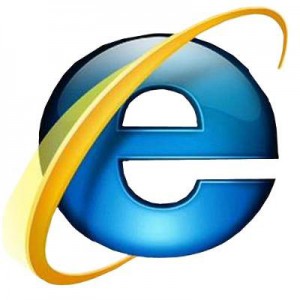Discontinued Support for Old Internet Explorer Versions
Yet another change in the Microsoft Windows landscape was given last August when Microsoft announced that as of January 2016, all versions of Internet Explorer (IE) prior to the most recent version 11 would reach their end-of-support date.
End-of-support is Microsoft’s way of saying that they will discontinue patching and providing security update support, which puts at risk all who refuse to upgrade. Which has caused many to say Microsoft is pushing users toward the newest version, IE 11. Others prefer to see IE 11 as safer and more productive.
IE marketing said that after Jan. 12, 2016, Microsoft would support IE 9 only on Windows Vista, IE 10 only on Windows Server 2012, and IE 11 on Windows 7 and Windows 8.1. IE 7 and IE 8 will drop off support completely, no matter what OS they run on.
“This is huge,” said Michael Silver of Gartner. “IE has been one of the biggest inhibitors if not the biggest inhibitor preventing organizations from moving to Windows 7 and Windows 8. I’ve spoken to organizations that said they’d have deployed Windows 8 if they didn’t have to upgrade IE. This is another way Microsoft is trying to persuade, or force, organizations to keep current. For some organizations, like those in regulated industries, that’s really difficult.”
Though most older versions of Internet Explorer have long since been eradicated from public use, Internet Explorer 8 remains one of the more popular versions of the web browser. According to NetMarketShare.com, worldwide browser usage on desktop operating systems are:
- IE 11.0 22.8%
- IE 8.0 19.1%
- Chrome 40.0 15.1%
- Firefox 35 8.4%
- IE 9.0 8.0%
- IE 10.0 5.4%
- Chrome 36.0 2.7%
- Safari 8.0 2.3%
- Chrome 39.0 1.4%
- IE 6.0 1.3%
Total IE use is 56.6%, with IE 8.0 about 34% of total IE users. Not a small group. However, the change in policy won’t just affect IE 8 users, either. Internet Explorer 9, while being supported on Windows Vista, will reach its end-of-support in 2017. Internet Explorer 10 will also only be available on Windows Server 2012, leaving Windows users with a decision; continue to run unsecured web browsers, or upgrade to a more recent operating system. According to ZDNet, 98 percent of all Windows users will be required to have Internet Explorer 11, if they desire to use Microsoft’s web browser with security updates and patches.
Adding to the difficulty, some business applications may not operate without older versions of Internet Explorer. Microsoft offers an enterprise mode for IE 11, which lets you access backward compatibility for your legacy applications while you upgrade to more modern technology. There might also be wiggle room for businesses to receive patches, similar to the Windows XP deals some businesses have made, but it would be much more economical in the long run to just upgrade away from your legacy software.
If your business needs help keeping operations constant while upgrades are applied, or if your business needs consultation concerning how to move to more modern solutions, contact Alliant Technology Group. We can apply updates and security patches to your systems remotely so your network will always operate at maximum security. For more information, call us at 626-461-1300.
